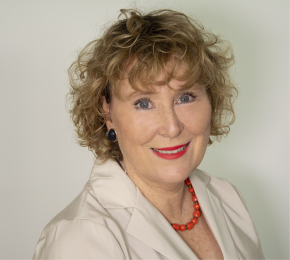For years we’ve been told exposure to blue light from screens before bedtime guarantees a bad night’s sleep. But does it really?
The message around blue light and sleep has been pretty clear – the two don’t mix.
The theory is, being exposed to blue light from a screen close to bedtime delays your body clock, pushing your “fall asleep time” way out to result in a loss of sleep.
But how true is it?
The relationship between light and sleep
“Light does play a really important role in regulating our circadian rhythm, or our body clock,” sleep practitioner and Nigh Nigh sleep consultancy founder Deb Herdman says.
“But in order to have an effect, it has to be bright light – and the amount of blue light that comes off a screen, for instance an iPad, just isn’t bright enough.”
What does the research say about blue light and sleep?
Internationally recognised sleep scientist and WINK Sleep director Professor Michael Gradisar, who has conducted studies to explore whether blue light from screens affect sleep, says: “What we found is that at most, it takes an extra three or four minutes to fall asleep if you’ve been looking at a bright screen with maximum blue light emissions, versus a dim screen, where blue light is dramatically reduced by the use of an app, before bed.”
Prof Gradisar, who is also Head of Sleep Science at Sleep Cycle AB, explains that while blue light is the richest colour that screens give off, even the brightest screens only reach 80 lux, with lux being a measure of light intensity received at the eyes.
“For comparison, when we want to change the timing of an early body clock by using something called Evening Bright Light Therapy, we use devices that are at least 500 lux,” Prof Gradisar says.
Doesn’t some research say otherwise?
“A Harvard study that came out in 2015 said in its summary, that people took ‘statistically significantly longer’ to fall asleep after reading an e-reader versus a printed book,” Prof Gradisar says.
“It was a good study but when you read the actual results, it only took people about 10 minutes longer to fall asleep, which is hardly anything.”
Prof Gradisar also warns about studies suggesting blue-light-blocking glasses help people fall asleep “much faster”.
“One study found people fell asleep 50 per cent faster when they wore them but, in reality, that equated to just a few minutes,” he says.
It’s worth noting too that a new review study, led by University of Melbourne researchers, found that the clinical evidence doesn’t support claims that blue-light-filtering lenses impact sleep quality at all.
How screens can still disrupt sleep
Deb says it’s worth knowing about something called “flow”.
“There are some people who find it difficult to get off their screens and miss their usual bedtime, whether it’s gaming, scrolling or bingeing a series,” she says.
“This is a concept or a state that’s technically called flow; we’re still not sure why some people are more susceptible to it than others, but for those who are, it certainly pushes the circadian rhythm out.”
Prof Gradisar, who has studied flow, agrees. “We found that teenagers who got into this state, where they lost track of time while playing a game online, eventually went to bed 90 minutes later than those who weren’t in flow,” he says.
“That’s a much bigger effect than anything that’s been shown for blue light.”
The bottom line? Prof Gradisar recommends being actively conscious of your bedtime.
“If you do that as an adult, then you can use your devices right up until your actual bedtime without affecting your sleep – just don’t go past it,” he says.
Read more on sleep:
- How to know it’s time to go to sleep school
- What exactly is REM sleep and why do we need it?
- Is poor sleep making you unkind?
- Waking up tired? Why sleep apnea might be to blame
Written by Karen Fittall.

